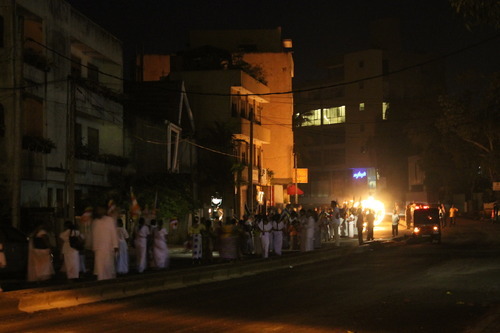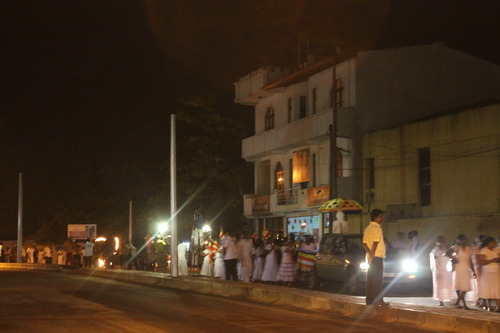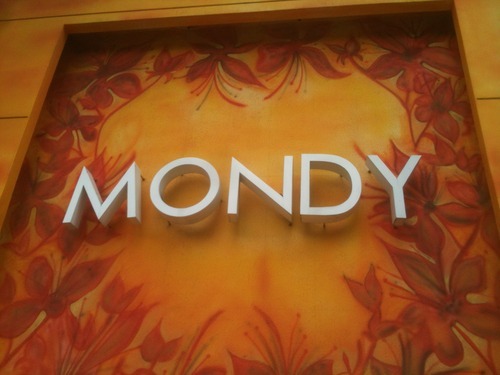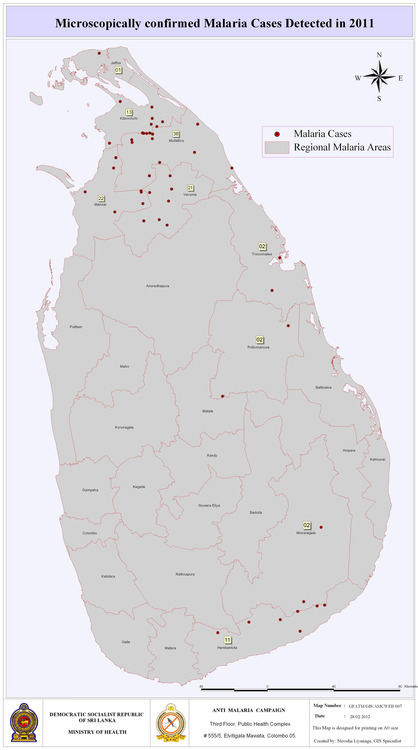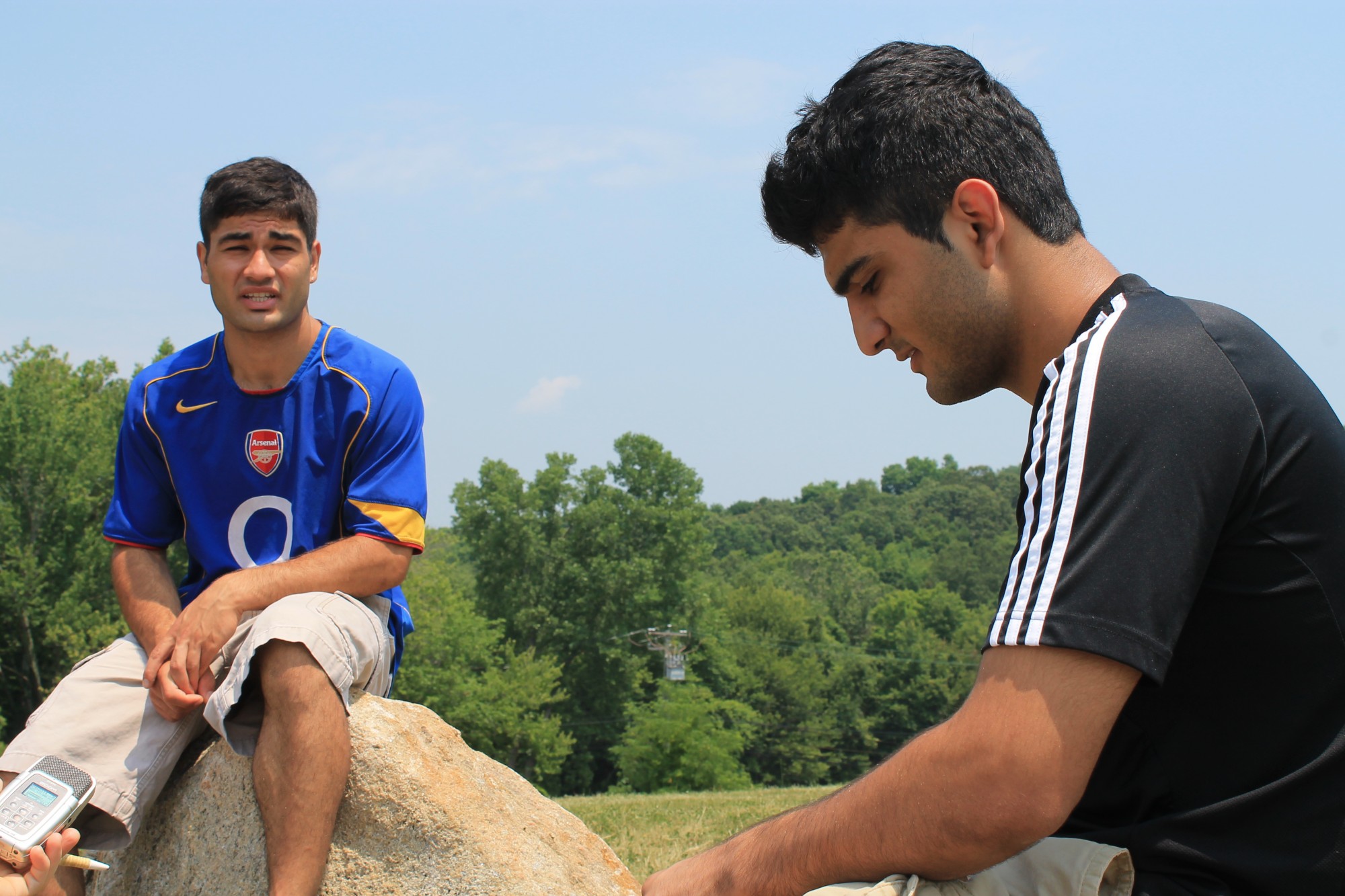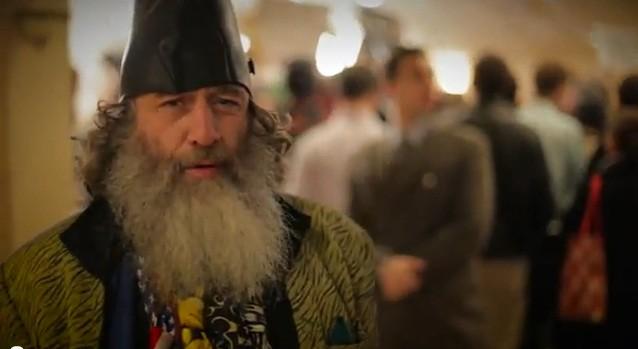The Sri Lankan Army (SLA) base commander looked at us strangely, clearly not comprehending that we had come to see the checkpoint, and not to travel beyond it. But they “have freedom now” he said of the people living north of the checkpoint, the checkpoint that once formed the border between Sri Lanka and Tamil Eelam.
This weekend, Sheela and I decided to head to Vavuniya (pronounced: Vowniya) and to Mannar. These two places are quite unique in Sri Lanka.
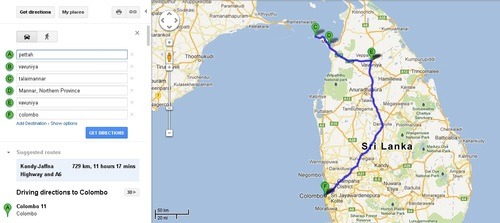
And so we found ourselves at the old border between Sri Lanka and Tamil Eelam in attempt to do a little tourism of Sri Lanka’s history. War tourism might be problematic, especially for people to make an industry off of the suffering of others—but this, I think, was a bit different—we wanted to see the old border and the old checkpoints (both Sri Lankan and Tamil Tiger). This border is important in Sri Lankan history for it’s obvious traumatic implications and it’s something that a self respecting foreigner living here should strive to understand.
Furthermore, for Sheela’s film research purposes, the war features in some manner in virtually every movie that she has watched. One called Under the Sun and Moon, describes the story of a mixed Sinhalese, Tamil couple that was split by the war. The plot’s a bit complex, but the basic idea is that the husband met his future wife while he was in the Sri Lankan army. His had just killed the wife’s brother, a Tiger and his superior officer, furious at deaths in his unit, guns down the wife’s parents for harboring the Tiger and then trains his rifle on the wife. The husband saves her life by putting his gun to his superior officer. They marry and have a kid but the husband dies later in the war, and the wife goes back to Tamil Eelam with their child. The child has a medical condition that requires the kid to go Colombo under the care of an uncle.
The final climactic scene involves the uncle driving to the border to bring the child back to his mother, as artillery fire is landing around them. The checkpoints are big and imposing, with significant fortifications—and something, we thought by watching the movies, worth seeing.
(Under the Sun and Moon is a heart wrenching movies in a Sri Lankan style that portrays evil and humanity on both sides of the conflict.)
With the images of the border in our mind, we set off for the checkpoint. Thinking it would be a cool idea, we first started walking from Vavuniya. Only to discover, 5km in, after a bit of a map reading error (my bad) that the border was at Omanthai, about 30km up the road. Omanthai is a small village with maybe a couple dozen houses and shacks and maybe a petrol station.
But there are no border checkpoints anymore, only three years since the war ended. They’ve all been removed. The only thing left is a small checkpoint run by the SLA which notes down your passport information. That’s all. The officer, confused by our reason for visiting, called in the base commander, who explain in English that we were welcome to walk around as long as we didn’t take any photos.
There’s nothing left to see. So we turned around to Vavuniya, nerves a little shaky at being present with so many army men and their machine guns.
